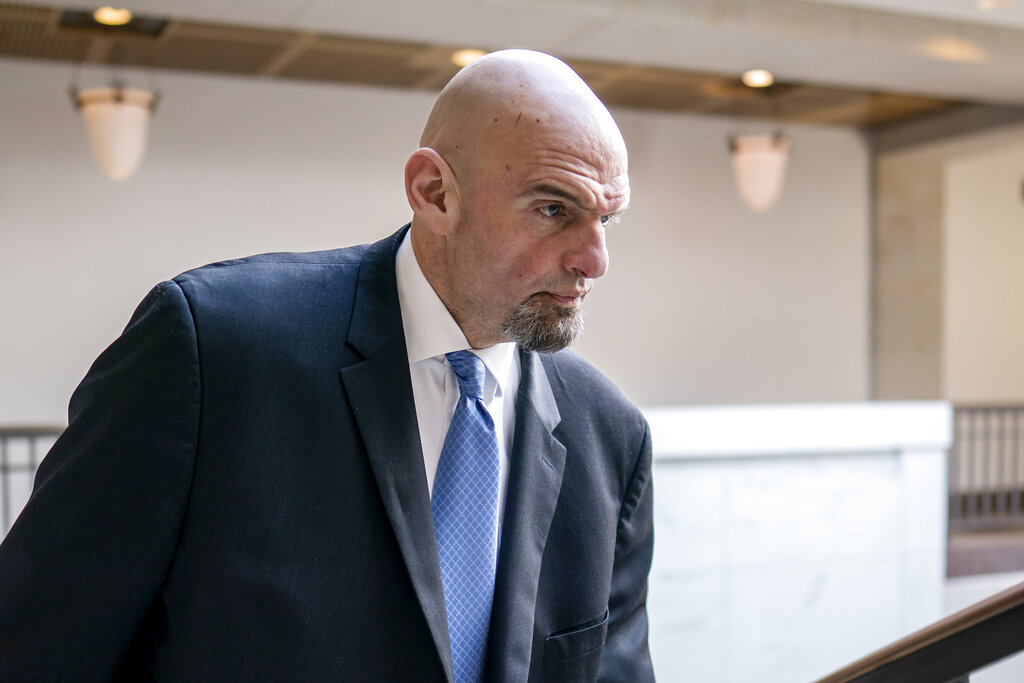It’s a reaction to what Republicans say is a left-wing activist campaign by federal judges, many of them appointed by Democratic presidents, to block the agenda of President Donald Trump.
Congress has the authority to limit the scope of federal courts, which were created by Congress, attorney Travis Weber, vice president for policy and government affairs for Family Research Council, said on Washington Watch Monday.
The U.S. Supreme Court could serve as a check on Congress through any lawsuits resulting from what is known as the No Rogue Rulings Act (NORRA) put forth by Rep. Darrell Issa, a California Republican, in the U.S. House.

Thanks to 100-plus lawsuits filed to stop Trump, in little more than two months district courts that are traditionally focused on matters within their defined areas have issued a whopping 15 injunctions against the Trump administration. That is more than were faced by Barack Obama and Joe Biden who had 12 and 14 during their entire presidencies, according to data from the Harvard Law Review via Matzav.com.
“What the constitution prescribes for how the balance of power is to be regulated between Articles I, II, and III, the legislative, executive, and judicial, there's some guidance there in the constitution, and it provides that Congress can regulate the federal court system pretty extensively. Congress can regulate the courts,” Weber told show host Tony Perkins.
Issa filed the bill in late February. It would amend the U.S. Code by adding a limitation on the authority to provide injunctive relief.
More than 120 lawsuits have been filed against the Trump administration since the beginning of his second term. The lawsuits take aim at a wide range of executive orders and actions including those related to immigration and deportation, transgender rights and more.
The restraining order issued by Washington, D.C., District Court Judge James Joasberg came in response to a lawsuit filed by the American Civil Liberties Union and Democracy Forward over the deportation of what the Trump administration says are dangerous members of international gangs Tren de Aragua and MS-13.
 El Salvadoran officials now holding the deportees have confirmed that they are members of these groups, NewsNation has reported.
El Salvadoran officials now holding the deportees have confirmed that they are members of these groups, NewsNation has reported.
“The federal lower courts are a creation of Congress. Only the U.S. Supreme Court is a creation of the Constitution," Weber said. "So this bill is a exercise of the constitutional authority granted to Congress to regulate the lower courts, and it's a permitted legal constitutional exercise of that authority in saying federal courts need to stop their nationwide injunctions."
What NORRA would do
NORRA would prohibit lower court judges from issuing injunctions that extend beyond the parties involved in the cases they’re hearing.
"The founders could never have envisioned judges and part of the legislative branch teaming up to tie down the executive and disempower the people," Issa told Fox News when the bill was proposed, adding that the current judge-shopping climate in the United States amounts to "judicial tyranny" and a "weaponization of courts."
 Democrats contend NORRA would embolden Trump, who has already issued 97 executive orders, compared to 42 issued by Biden in his first 100 days.
Democrats contend NORRA would embolden Trump, who has already issued 97 executive orders, compared to 42 issued by Biden in his first 100 days.
In the case of Boasberg and the deported likely gang members, injunctive relief affects Americans from coast-to-coast, millions who swung the 2024 popular vote Trump’s way with immigration being a key policy, not just the roughly 250 deportees.
“It applies to everyone nationally, regardless of whether they are a party to the lawsuit, regardless of whether they've been personally injured, they're subject to the nationwide injunction. It’s a huge step from where we’ve come,” Weber said.
What Boasberg and other judges are doing, their critics allege, is basically setting policy instead of settling legal disputes.
 “You effectively have that, especially when you look at the fact that after the injunctions, you have a new national policy until there’s an alteration of the injunctions,” Weber said.
“You effectively have that, especially when you look at the fact that after the injunctions, you have a new national policy until there’s an alteration of the injunctions,” Weber said.
Defense Secretary Pete Hegseth certainly made that argument in the legal fight over banning transgenders from the armed forces. "Since ‘Judge’ Reyes is now a top military planner," he wrote in an X post, "she/they can report to Fort Benning at 0600 to instruct our Army Rangers on how to execute High Value Target Raids."
The venue shopping problem
Removing the nationwide injunction powers of the district courts would also remove the ongoing abuse of the judicial system through what’s become known as “venue shopping." That is when the aggrieved party files a lawsuit in a jurisdiction it believes has a judge sympathetic to its cause.
Like a policy-making judge, venue shopping greatly undermines the will of voters, Weber said.
“On one level, you can’t blame the lawyers for representing their clients and trying to do that," Weber, himself an attorney, allowed. "On another level, it has the effect of altering the national policy on matters that an elected president in his or her administration have proceeded to do in accordance with the will of the people.”
Removing the nationwide injunction would be a course correction for the judicial system, Weber argued.
Injured parties appearing before the court would see their cases “go on up through appeal. That’s the way historically that cases have been dealt with. This would say, ‘Let’s kind of move back in that direction and stop having courts basically reissue national policy until the matter works its way up on appeal.”














